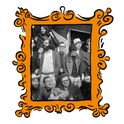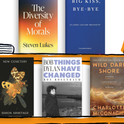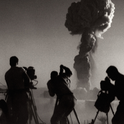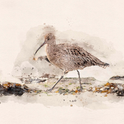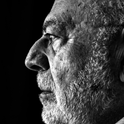What should Prince William do when his baby is born in July? Speculation suggests that, after taking a fortnight’s paternity leave, the Prince will go back to flying his RAF helicopter. Meanwhile, the child-rearing will be left to the professionals, namely Kate and her mum. The Duchess is expected to head home for a parental apprenticeship with her mother while William is away.
The plan sounds practical, but William should consider the downsides. William could, in choosing the absentee dad option, destroy our only chance of having a useful king for as long as anyone can remember.
Although there were four kings in the 20th century, few can recall any of them doing much beyond overcoming a stammer. Their wives, meanwhile, seemed magnificent. Queen Mary and the Queen Mother towered. Elizabeth II has been stately as queen in her own right. If Will heads straight from hospital to helicopter, he can expect, like his male predecessors, to also be upstaged, in his case by Kate.
Why? Because the traditional alpha male, militarised version of kingship for which royal men are trained, has long been irrelevant. In a democracy we don’t want an “Action Man” ruler in the Palace.
The job description for the head of the Royal Family in today’s Britain calls not for a political leader—that’s the PM’s job. We are looking for someone rooted in the real world, who understands us, can speak for our feelings, someone heading up our “first family” who can represent us at our best and most hopeful. Someone we can relate to, like the Queen Mother in the Blitz, or Diana screaming down a water slide at Thorpe Park with her sons.
So, what would be the best training for modern kingship? Not helicopter-flying or shooting the Taliban. Becoming an involved, hands-on parent is the perfect induction course. Raising children is a great way to gain the emotional intelligence that is a must-have for royal success in 21st-century Britain.
But that won’t be easy for William. The Windsors’s aristocratic notions of gender roles are unlikely to encourage such behaviour from a “real” royal man. They are still turning out alienating, militarised men, Pythonesque parodies weighed down by ridiculous medals.
Of course, we shouldn’t pretend that any of the royals, male or female, did much hands-on parenting in the 20th century, least of all our own Queen—a mother of four. Who can forget her returning from a five-month Commonwealth tour and greeting her young son and heir, the four-year old Prince Charles with a gloved hand to shake.
Nevertheless, mums at the top of the royal hierarchy have still appeared more relevant than the dads. Even where royal mums have fallen short on public mothering skills, a society that imagines mothers to be instantly skilled, primary carers projects its own fantasies on a queen more easily than on a king.
This is why the royal history of the 20th century is noted for its queens, not kings. The mums were trained for the job. The dads weren’t.
So where does this leave Will? He has already supplied a suitable queen-in-training. Kate looks ready to follow in the footsteps of Diana, the royal mum who could have made Charles III palatable. Job done? Back to the helicopter?
Not so fast. William could make himself and the Royal family more relevant than his male predecessors by not outsourcing the key role to Kate. He does not have to be another redundant king, unskilled in the language, perceptions and understandings that are needed for the job.
Indeed, he has a great asset. Unlike older Windsors, William was well mothered. When Princess Diana went on long trips, baby William came too. A memorable film clip shows a generational shift—Diana arriving back on the Britannia, greeting her boys withoutstretched arms. Diana hard-wired William to be the Royal family’s first modern king. He could, unlike his own father, make himself fit for purpose as a 21st-century monarch and not leave it up to Kate. But the first few months after the birth are crucial. That’s when hands-on skills and confidence in this realm are established. If Will misses the opportunity, he’ll be poorly qualified for the day job of understanding a nation.
So what should he do? Ditch the helicopter for a while, endure the nappies, the sleepless nights, the emotional and physical mess that is early parenthood. It is the training camp for modern kingship. In setting limits on work and exploring the world of children and family, William would also be a leader for change, a role model, echoing the aspiration of today’s dads - and mothers - trying to do the right thing for their children and each other.
Ditch the helicopter, start changing nappies
Prince William will be a better king if he's an involved father from the start
June 14, 2013


